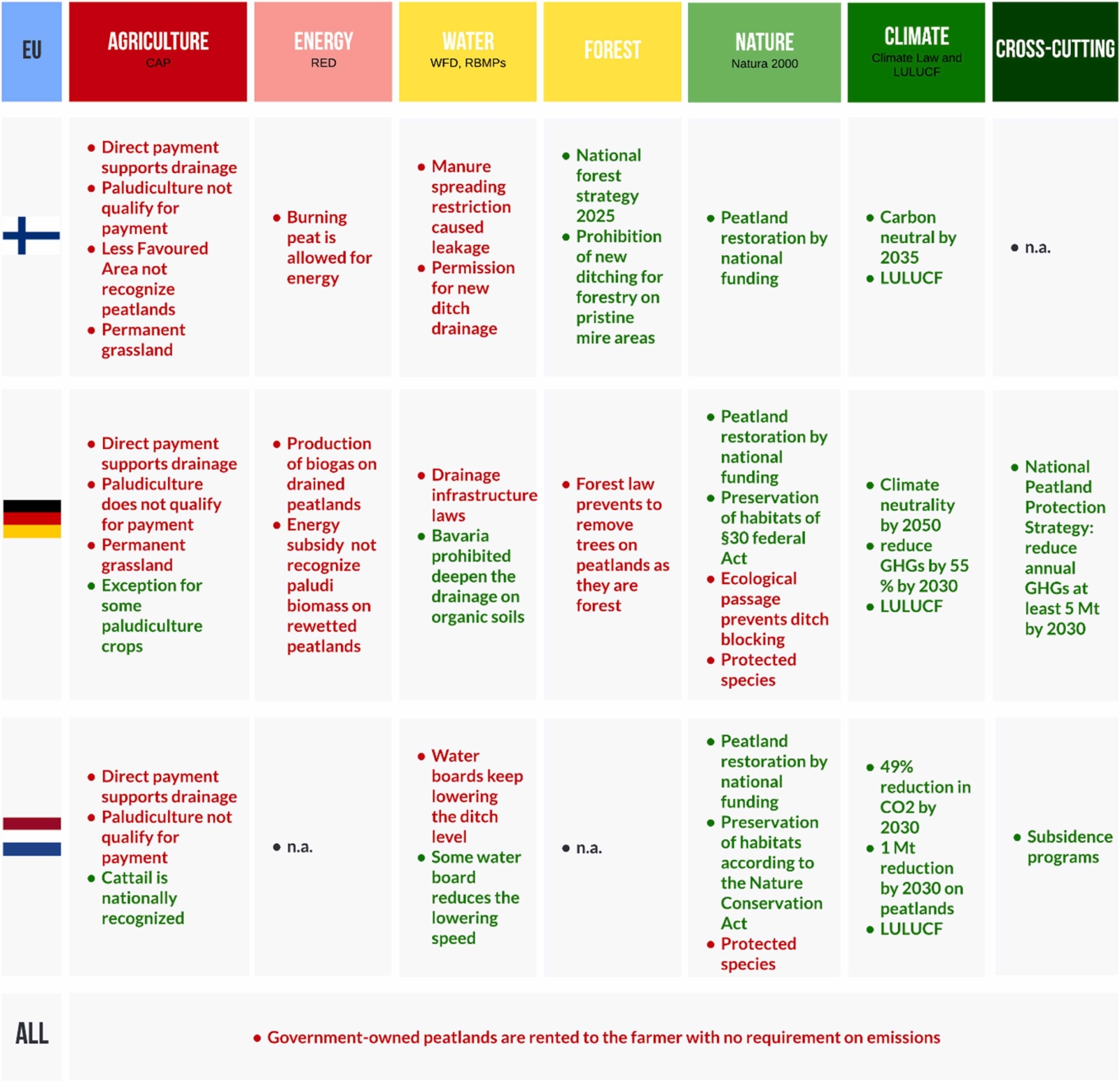July 2023 | Environmental Science & Policy |
The Leibniz Centre for Agricultural Landscape Research (ZALF) and Leibniz University of Hannover in Germany conducted a study focusing on the importance of peatlands in global efforts to combat climate change. Peatlands have been a missing piece in the European Union's (EU) climate change mitigation policies. The researchers investigated how policies at different governance levels, including the EU, member states, and regions, both support and impede existing and new climate-friendly peatland usage policies.
The study placed a particular emphasis on incentive-based policy instruments, which are often seen as promising for transitioning towards sustainable peatland management. The three peatland-rich EU countries Finland, Germany, and the Netherlands were selected for the analysis. Through semi-structured interviews with 35 experts, the study revealed a lack of horizontal policy coherence among various sectors including agriculture, nature conservation, water management, forestry, energy, and climate policies, regarding climate change mitigation measures for peatlands.
At the EU level, the Common Agricultural Policy was found to counteract climate targets by encouraging unsustainable peatland management through direct payments. National and subnational policies in Finland, Germany, and the Netherlands focused primarily on water quality, nature conservation, and subsidence respectively, rather than climate change mitigation.
The study identified a lack of clear guidance on raising the groundwater table, which rendered the current incentive-based policy instruments ineffective in reducing emissions. Despite the higher mitigation potential of rewetting peatlands, potential incentive-based policies faced regulatory barriers due to policy incoherence.
In conclusion, the transition to climate-friendly peatland usage necessitates coherent regulatory frameworks and incentive-based policies that support the rewetting of peatlands.

Relevant policies for climate change mitigation in peatlands (green: supporting; red: conflicting).





